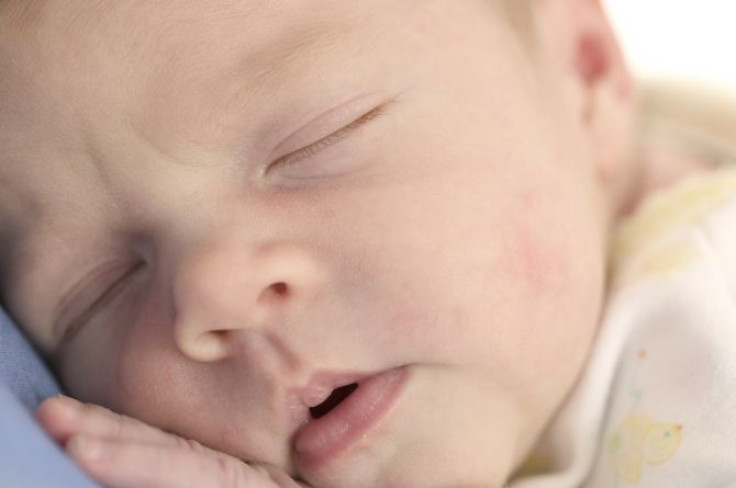Vigilance Urged for Kids Born With Heart Defects as They Are at Greater Risk for Other Conditions

Children born with a heart defect need to be screened early and regularly for a variety of cognitive and developmental deficits, according to a new set of guidelines published in a statement by the American Heart Association on Monday.
The new recommendation is based on a review of findings from previous research showing that children born with major heat defects, particularly defects that require complex surgery to repair or that chronically obstruct blood flow to the brain, are significantly more at risk for developmental disorders that can lead to physical, behavioral, emotional and intelligence deficits later in life.
The AHA statement also identifies congenital heart defects, conditions that increase the risk of developmental disorders among children with such birth defects for the first time.
The CHD conditions identified include open heart surgery in infancy, having a congenital heart defect that results in the child being chronically "blue", or a combination of congenital heart disease and one of the following issues: premature birth; developmental delay as a baby; suspected genetic abnormality or syndrome; history of mechanical support to help the heart; heart transplantation; a history of cardiopulmonary resuscitation; prolonged hospitalization during the child's heart care; seizures related to heart surgery; and brain abnormalities noted on brain imaging.
Besides assessing risk level and referring children at high-risk for developmental defects further developmental and medical evaluation, the scientific statement, published in the journal Circulation and approved by the American Academy of Pediatrics, also recommended that parents establish a "medical home" to coordinate care between various specialists and to make sure that each time at-risk children visit their medical home their risk for developmental disorders should be reassessed because risk level may change over time.
The organization also indicated that if children are considered high-risk, they may be referred for early intervention even before a developmental disorder is diagnosed and that periodic reassessment for developmental disorders is recommended throughout infancy and childhood at 12 to 24 months, 3 to 5 years and 11-12 years of age.
Researchers also said that children with heart defects may also benefit from higher-education or vocational counseling in adulthood.
About 36,000 babies or nine of every 1,000 children are born with a congenital heart defect every year in the United States.
While medical advances help most infants born with a heart defect survive into adulthood, the 1 million and 3 million adult survivors in the United States are still at a greater risk for developmental problems compared to heart-healthy children.
Each year in the United States, about 36,000 infants (nine of every 1,000) are born with a congenital heart defect. Medical advances help most infants with a congenital heart defect survive into adulthood and there are between one million and three million adult survivors in the United States.
"If we identify developmental problems earlier, we're going to help prevent issues from coming up in school that prevent these children from achieving their fullest potential," group co-chair Dr. Bradley Marino, an associate professor of pediatrics at the University of Cincinnati College of Medicine, said in the heart association news release.
"In the past, we were happy if they survived. Now, we want them to survive and thrive," Marino added.
Developmental deficits among children born with heart defects may appear in childhood or adolescence as problems in school, poor social skills, physical limitations, speech and language difficulties, and attention, behavior and emotional issues.
"If your child fits the high-risk criteria, go to the physician who coordinates your child's care to obtain evaluations for neurodevelopmental, psychosocial and behavioral and emotional issues," said Marino, who is also director of the Heart Institute Research Core and the Heart Institute Neurodevelopmental Clinic at Cincinnati Children's Hospital Medical Center.
"Your child's cardiologist should continue to handle the physical issues related to your child's heart disease, but other caregivers need to join your child's 'medical home' to ensure the best ongoing, comprehensive care," he added.



























